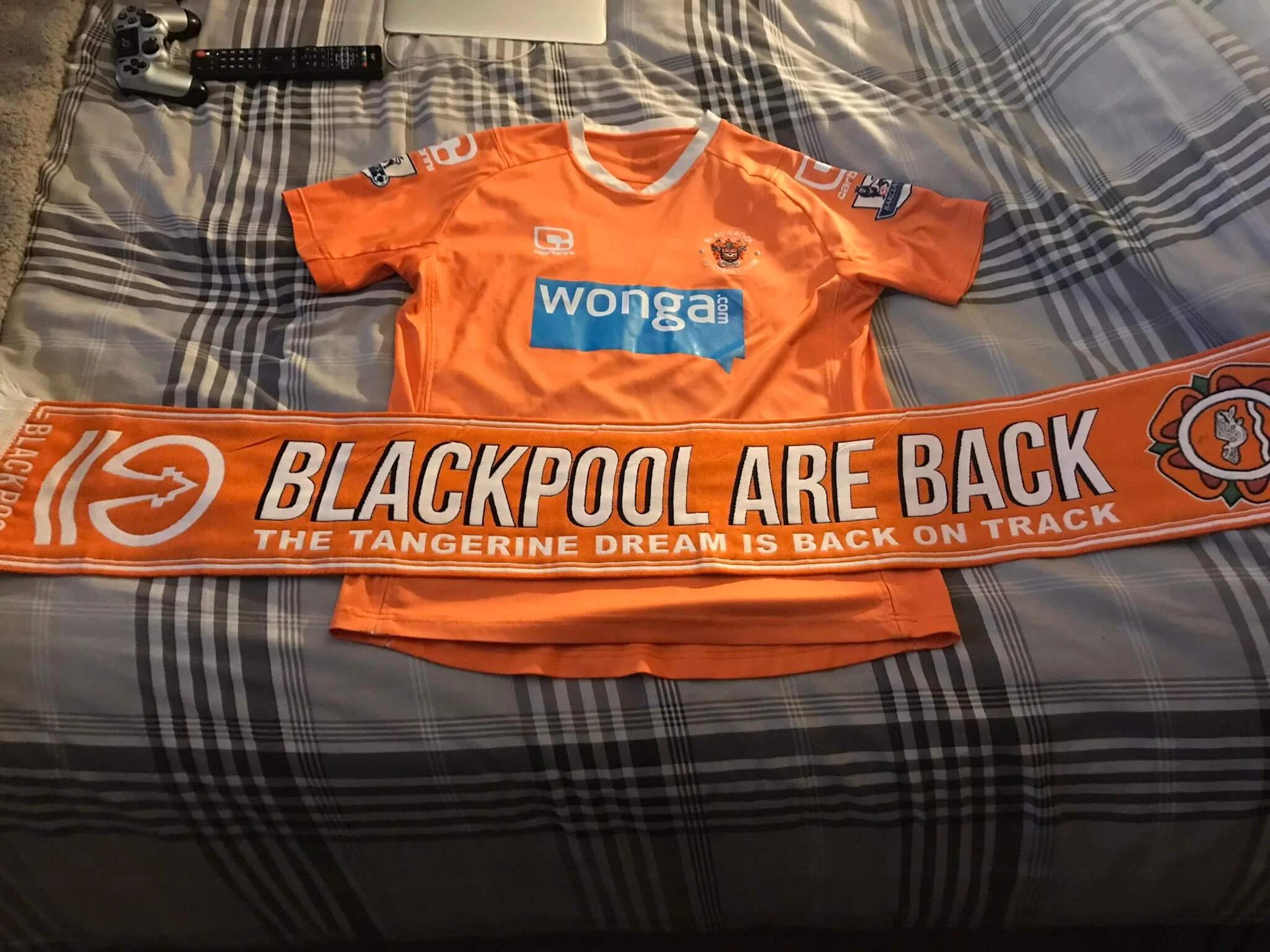Blackpool FC Under the Infamous Oyston Family
The Oystons: The Criminal Football League Owners Hated by Fans
Blackpool F.C. has experienced many disappointments over the past couple of decades - and the Oyston family oversaw it all.
But who were these infamous football club owners? And why are they SO hated by Blackpool fans?
The Sporting Blog tells the full story!
Former Blackpool Football Club owner Owen Oyston
Blackpool will be playing in League One next season after suffering relegation from the Championship, but many forget they were briefly a Premier League side in the last decade and nearly consolidated in the top flight on a shoestring budget.
Owen Oyston (owner) and son Karl Oyston (chairman) ran Blackpool F.C. for more than 30 years, but the pair weren’t popular among supporters due to criticism over investment.
Protests were commonplace every season, and fans even staged a mass home boycott that lasted four years, but the family endured until a criminal investigation finally forced them out.
So, what exactly happened to Blackpool F.C. under the infamous Oyston family? We tell the full story!
Who is Owen Oyston?
Owen was born in County Durham on January 3, 1934, but moved to Blackpool as a child and was educated at a local school – St Joseph’s College.
He tried to start a firm in London after opting out of higher education but ended up returning to Blackpool after it failed.
Oyston made his fortune from the estate agency business, running a successful firm in the 60s and 70s. By the 1980s, Oyston's Estate Agents had made a name for themselves as a family-run business.
He sold the firm to Royal Insurance in 1987 for £37m before the stock market crash and invested in Blackpool.
That same year, Oyston bought a large stake in the Tangerines who were a struggling Division Three (League Two) club at the time, becoming chairman in 1988.
Owen invested his money in publishing (Lancashire Life and News on Sunday), commercial radio (Trans World Communications) and cable network (Oyston Cable Communications Group Limited).
He was even chief executive of Miss World’s international beauty pageant, so his influence was wide-reaching.
In the 1990s, Oyston invested in a new stadium at Bloomfield Road, featuring new stands, restaurants and a hotel, but he would step down as chairman after being convicted of rape and indecent assault in 1996.
Oyston insisted on his innocence but failed on appeal and served three years in prison.
Vicki Oyston took over as chairwoman while Owen was incarcerated, but her son Karl would take the reigns in 1999 for the next two decades.
Investment From Valērijs Belokoņs
Blackpool suffered relegation to Division Three just one year into Karl’s tenure and stagnated in Division Two for many years afterwards, so Oyston sought investment to get the club back on stable footing.
Blackpool relied on free transfers and loan deals to build their squad each season, keeping players’ wages low and refusing to pay agents, so they never had a competitive side to challenge in the top half of the table.
That changed after Valērijs Belokoņs bought a 20% stake in 2006 through Belokoņs Holdings and VB Football Assets.
Not only were renovations finally undertaken on the stadium, but the Tangerines also spent £500k on new players in 2006/07 and earned promotion to the Championship for the first time in decades.
They spent £400k in 2007/08 and over £1m in 2008/09, consolidating in the second tier, but 2009/10 was to be their best season in recent history.
Blackpool broke their transfer record over the summer and spent over £1m on new recruits. It paid off as they earned promotion to the Premier League via the playoffs, beating Cardiff City at Wembley.
The Tangerines made it to the top flight with one of the smallest budgets and smaller grounds, so fans hoped Blackpool would make the most of the £90m windfall from promotion.
Lack of Spending by The Oystons
Blackpool spent just £5m on 15 players in their maiden Premier League season, making DJ Campbell their record signing of £1m.
The Tangerines mostly opted for free transfers and loan deals despite their healthy finances, so fans questioned why the purse strings were being tightened.
Blackpool were relegated on 39 points and the club sanctioned the sale of valuable assets in the summer of 2011, raising £10m from Charlie Adam and DJ Campbell, but they only spent £2m in return.
The Tangerines were shrewd in the market, however, signing Tom Ince, Barry Ferguson, Callum McManaman, Jonjo Shelvey and Kevin Phillips among others.
Phillips top-scored as Blackpool reached the playoffs, almost making an instant return to the Premier League, but they lost in the final to West Ham United.
Blackpool reverted back to barely spending on transfers in the years that followed and it negatively affected their league finishes.
Blackpool F.C.’s League Finishes 2012-2017
2012/13 (Championship): 15th on 59 points
2013/14 (Championship): 20th on 46 points
2014/15 (Championship): 24th on 26 points
2015/16 (League One): 22nd on 46 points
2016/17 (League Two): 7th on 70 points
2017/18 (League One): 12th on 60 points
Protests at Blackpool
Supporters have long protested the Oystons’ ownership of Blackpool and things intensified after what they perceived to be a lack of investment following the lucrative promotion to the Premier League.
Fans weren’t happy with a mere fraction of the £80m being spent on new players while expressing frustration that talented players were sold and replaced with free transfers.
And following the revelation that Owen was paid £11m in director’s pay while Blackpool were being relegated back to the Championship in 2012, fans were rightly furious.
Two years later and things somehow got worse. More than 20 players left Blackpool weeks before the 2014/15 campaign, leaving them with eight first-teamers and making relegation a certainty.
The Tangerines couldn’t beat the drop and had their final match abandoned due to an on-pitch protest.
Protests at Blackpool Football Club. Photo credits: UPT Twitter
They would suffer relegation from League One in 2015/16, so fans made the difficult decision to boycott all home games, to avoid giving their money to the club.
They would protest before the match and avoid entering the stadium during the game.
Blackpool fans even tried buying the club from the Oystons without success, and the relationship between both parties was further strained when supporters were sued by the owners for criticism on internet forums - David Ragozzino (£40k), Stephen Reed (£30k), Frank Knight (£20k) and Tim Fielding (£20k).
Karl famously verbally abused a dissenting fan too and almost relished being disliked by mocking the protests and being flippant in interviews about the criticism.
A Conviction For Illegal Stripping of Funds
In September 2015, Belokoņs took legal action against the Oystons, alleging improper use of club funds. Two years later, he resigned as director of Blackpool.
And months after leaving his post, a court determined Owen and Karl had stripped the club of funds illegitimately.
They were ordered to pay £31m to buy Belokon’s shares, having abused their majority shareholding position in a way that was detrimental to him.
Photo credits: Steve Clarkson Twitter
Justice Marcus Smith found the Oystons paid £26.77m to companies they owned, during and after the single lucrative season in the Premier League. They also had to pay Belokon £4.5m for his 20% stake in the company.
And as supporters hoped from the judgement, the Oystons were forced to sell the club. Blackpool-born businessman Simon Sadler acquired a 96.2% stake in June 2019, ending three decades of Oyston rule.
Do you think the Oyston family destroyed the football club under their rule? Let us know your thoughts in the comments!
Read more on our football blog




